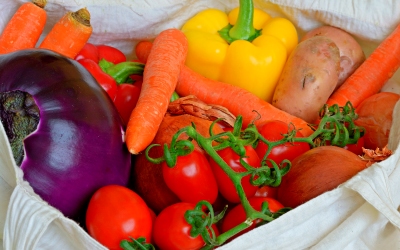Vegan Power: Check Out the Athletes Who Said Bye to Burgers
If you want a really powerful punch to your workouts, a vegan diet is out of the question, right? Surely you need something a little more substantial than nuts and berries to boost your strength and endurance. Not according to Brendan Brazier. This former Ironman triathlete and ultra-marathon champion changed to a vegan diet as a high school athlete hoping to turn professional, and he’s never looked back.
Brazier explained, ‘I knew I had to improve. I tried high carb, low carb, high protein, low protein, all sorts of different diets. Then I tried plant-based. It started with me just taking a daily blender drink of fats, plants, proteins.’ Since then, the 38-year-old Canadian has written three books on veganism, including Thrive Fitness: The Vegan-Based Training Program for Maximum Strength, Health, and Fitness, but he’s not the only athlete who has seen the wellbeing benefits of a vegan diet.
Tennis star Venus Williams became a vegan after being told she had Sjogren’s syndrome, an autoimmune disease, whilst olympic skier Seba Johnson has been vegan from birth. Other sporting vegans include ice hockey player Mike Zigomanis, Baseball’s Prince Fielder and ultra-marathoner Scott Jurek, so why are the world’s fittest and fastest trading in their steaks for spinach?
According to the wellness experts, plant-based diets give you more energy, deeper sleep and better performance. Julieanna Hever, a personal trainer, registered dietician and author of The Complete Idiot’s Guide to Plant-Based Nutrition, commented, ‘We see athletes recovering faster, maximizing training, and thereby improving performance.’ However, she added, ‘Unfortunately, there are not yet any clinical trials on vegan athletes.’
Yet registered dietician Sharon Palmer, author of The Plant-Powered Diet noted that some studies show antioxidants and anti-inflammatory compounds, as found in spades in a plant-based diet, can help prevent and treat issues related to recovery. Palmer said, ‘It makes sense that anti-inflammatory compounds would help athletes avoid inflammation related to training, and the majority of anti-inflammatory compounds are found in plant foods.’ She warned that veganism can put you at risk for deficiency in protein, vitamins B12, D, and calcium, and you might need a supplement or to consult a dietician. ‘I see that people just wing it.’ Palmer said. ‘They decide that their bodies will just fill in for their gaps in their diets, which is not true.’


Comments are closed.